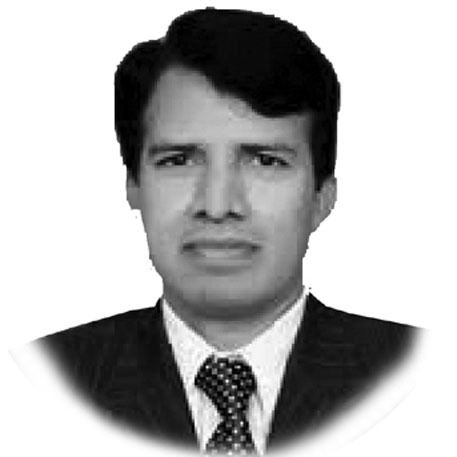Dr Muhammad Khan
After a pause of almost 50 years, Kashmir dispute was debated by United Nations Security Council (UNSC) on August 16, 2019. Pakistan has rightly approached this world body for playing a decisive role towards the resolution of this long-standing dispute, after India unilaterally took the extreme step of doing away with special status of the state of Jammu and Kashmir by abrogating Article 370. This closed door meeting of the 15-members of UNSC, called by China and Pakistan debated the current situation in Indian occupied Jammu and Kashmir, however, did not issue any formal statement or a draft resolution. Later, the Chinese Ambassador to UN, Zhang Jun, while summing up the discussion said, “The UNSC members are concerned about the human rights situation there and they (want) the parties concerned to refrain from taking any unilateral action that might further aggravate the tension there since the situation is already very tense and very dangerous.”
It was expected that this highly influential international forum will seriously analyse the current unusual situation in the occupied Jammu and Kashmir and thereafter, issue some appropriate and executive statement, asking India to undo what it has unilaterally changed the status of Jammu and Kashmir in violation to the previous resolutions of UNSC. Unexpectedly, there came neither a condemnation statement against Indian excesses nor its violations of UN resolutions on the status of the disputed nature of the state. The closed door meeting of UNSC even did not emphasize India to bring an end to the curfew and black out; it has imposed since last two weeks. Showing concerns by UNSC, as stated by Chinese Ambassador without any ruling means a symbolic gathering, short of touching the essence of the dispute. No doubt the situation in IOK is very tense and dangerous especially in the context of India threatening Pakistan with a nuclear war and has unleashed a reign of terror in the occupied state.
Ms. Maleeha Lodhi, the Pakistani Ambassador to UN and Foreign Minister, Shah Mehmood Qureshi highlighted this meeting as a milestone in the history of Kashmir dispute. Ms Lodhi feels that, ‘the meeting brought the Kashmir dispute back to the world’s most influential panel. She said, “The voice of the Kashmiri people resonated in the chambers of the world’s highest diplomatic forum today. The whole world is discussing the occupied state. This is an international dispute.” No doubt, Kashmir is an international dispute, right from the beginning (1948), once India took the dispute to UN. Kashmir is neither integral part to India nor a bilateral dispute. In the real sense, UNSC could have convened an emergency session over the current unusual situation in IOK without a formal request from China and Pakistan, since Indian Government has challenged the UN earlier resolutions over Kashmir. It was for the maintenance of its own prestige and universality that, UN could have called a session over Kashmir which could have condemned the unlawful acts of India. India has intensified killings of Kashmiris and oppression in IOK since mid-July 2019 with a complete blackout of the state from August 2, 2109.
Today, no one is aware of what is a happening in IOK. Even neutral Indian media has not been allowed to enter the occupied state to let the world know, as what is happening within the state. UNSC could have debated the Kashmir dispute on the principle of self-determination is prominently embodied in Article I of the UN Charter, explaining that, “All peoples have the right to self-determination. Indeed, this is the formula, this world body has already emphasized in its resolutions on Kashmir and India has been a reluctant partner to implement its resolutions. By virtue of this fundamental right, Kashmiris can freely determine their political status and freely pursue their economic, social and cultural developments.
Since last two weeks, occupied Kashmir is under curfew and virtually represents the status of an open prison where no one is allowed to move out from their houses. Indian Army, its paramilitary forces and above all the Rashtriya Swayamsevak Sangh (RSS) and Bajrang Dal (BD) men are visiting each house in IOK to frighten the masses while undertaking the acts of killings, torture and rape. The oppressed people of the state are looking towards United Nations once again with a hope that it will play a constructive role for concluding the dispute on logical grounds as per its Charter and resolutions.
As an impartial world body, UNSC could have questioned the Indian brutalities and unlawful decision of annexing the territory of Jammu and Kashmir as part of Indian Union. Practically, there cannot be any accession of the state with India, since UNO has passed two specific resolutions with a clear verdict regarding the powers and jurisdiction of the State’s Legislative Assembly. Through UN resolutions; March 30, 1951, and January 24, 1957, it is categorically stated that, State’s Assembly cannot determine the future status of the state, until there is a UN sponsored plebiscite. Pakistan and Kashmiris are concerned that, despite its clear directive through its resolution, India continued its illegal acts and this world body could not take any action against it. Regrettably, after seventy-two years, UN still seems to be indecisive to take a step forward for the resolution of this outstanding dispute. This world body took clear actions in case of East Taimoor, South Sudan and many such like issues, which provides a pretext to Kashmiris to say that, UN is discriminatory and so are the major powers. Had, this world body been free and impartial from the influence of major powers and India, Kashmiris would have achieved their right of self-determination much earlier. It was right time that UNSC could have taken a decisive step for the resolution of this dispute with an interim order for stopping India from taking decisions against UN resolutions and against international law.
— The writer is Professor of Politics and International Relations at International Islamic University, Islamabad.










